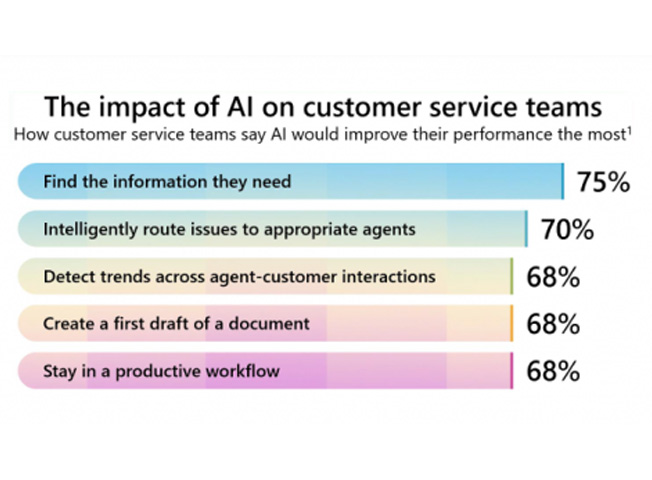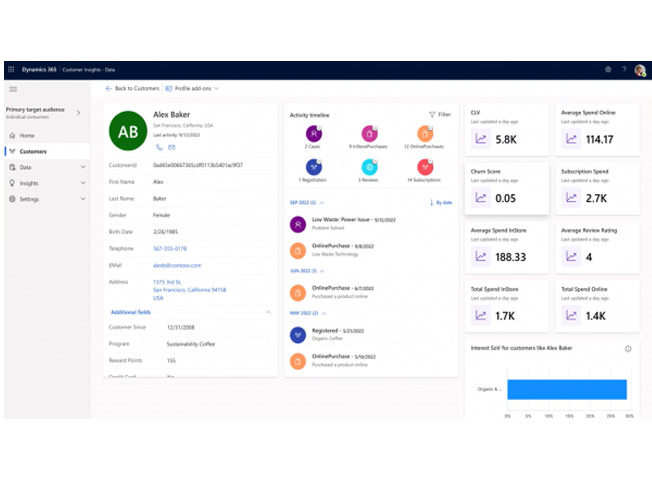The Essential Guide to Implementing Dynamics 365 CRM Solutions
Empowering Digital Transformation

For companies looking to improve customer engagement, optimize processes, and use data analytics to inform strategic choices, putting Microsoft Dynamics 365 CRM (Customer Relationship Management) solutions into place is a major turning point. Businesses operating in a digitally linked world will find it advantageous—if not indispensable—to incorporate Dynamics 365 CRM into their operational framework. This project, which is frequently started under the direction of a Microsoft Solutions Partner, takes a comprehensive approach to digital transformation and places special emphasis on cloud infrastructure, ERP (Enterprise Resource Planning), CRM, and BI (Business Intelligence).
Implementing Dynamics 365 CRM Solutions
Dynamics 365 CRM implementation calls for detailed planning and execution. Here are some crucial actions to take into account:

- Define Goals and Objectives: Clearly define the business goals and outcomes: you want to achieve by adopting Dynamics 365 CRM solutions. This makes it easier to match the implementation strategy with the organization’s specific requirements.
- Analyze Requirements: Perform a detailed examination of the current CRM procedures, data layout, and integration needs. This assessment aids in finding any gaps and indicating the setups and adjustments that are required.
- Design and configuration: Create the structure, workflows, and user interface for the CRM solution based on the requirements that have been established. Make sure that the system is configured appropriately, taking into account the organization’s specific processes and workflows.
- Data Migration: Move existing customer data from legacy systems to Dynamics 365 using data migration. To achieve accurate and comprehensive data migration, these steps include data cleansing, transformation, and mapping.
- User Training: Educate users thoroughly on the best ways to use Dynamics 365 CRM solutions. This covers instruction in data entry, reporting, and utilizing cutting-edge technologies to boost productivity.
- Testing and Deployment: Make sure the customized CRM system fulfills your performance and functionality objectives by thoroughly testing it. Deploy the solution across the organization after it has been validated, ensuring there will be no disruption to regular business activities and proper system integration.
The Strategic Imperative of Dynamics 365 CRM Implementation
Dynamics 365 CRM’s primary goals are to centralize customer data, automate marketing procedures, expedite communication, and use advanced analytics to deliver insights that can be put to use. By using a single, cohesive strategy, all customer interactions are individualized and well-informed, which increases customer happiness and loyalty. Businesses should adopt such a system as a strategic move that supports their objectives for growth, efficiency, and competitive advantage, rather than just as a means of modernizing their IT infrastructure.
Realizing Cloud Infrastructure, ERP, CRM, and BI Transformations
Dynamics 365 CRM deployment is a collaborative process. It is a component of a larger plan for digital transformation that also includes cloud infrastructure, ERP, CRM, and BI. Each of these interrelated components is essential to improving consumer engagement, data-driven decision-making, and operational efficiency.
By handling back-office tasks like finance, supply chain, and human resources, an ERP system enhances a CRM. Advanced analytics and insights are provided by BI tools, which enhance this ecosystem. Modern businesses can rely on cloud infrastructure for its ability to scale, secure and adapt to ever-changing needs. When all systems combined, these can help organizations become more customer-focused, responsive, and agile.
A Microsoft Dynamics Partner Can Help
Implementing Dynamics 365 CRM solutions is a complex and multifaceted task. It requires not only a deep understanding of the software, but also a tailored approach to meet the specific needs of your company. This is where a Microsoft Solutions Partner’s knowledge and experience shine. Certified partners offer the knowledge needed in using Dynamics 365 to address practical business problems in addition to its technical components. They serve as counselors, consultants, and implementers who customize the CRM system to fit each company’s unique process, market demands, and customer engagement strategies.

Navigating the Transformation Process
Starting a CRM implementation project with a Microsoft Solutions Partner involves key steps that are critical to ensuring the project’s success. The process begins with an in-depth needs analysis and system design. During this phase, the requirements for the CRM system are identified and the existing processes are evaluated. This step is crucial in aligning Dynamics 365’s features with the strategic objectives of the company.
After that, the CRM system is configured and customized during the deployment phase. Data transfer and connection with other systems, such as ERP or BI tools, also take place at this time. In order to guarantee that users are competent with the system and that it is successfully implemented throughout the company, training and support from a Microsoft Solutions Partner are essential elements of this final phase.
Get Guidance From a Microsoft Solutions Partner Today
![]()
Chat with our Customer Service Rep.
Available Monday-Friday
9 AM to 6 PM Pacific Time.
USE THE CHAT BOX >






